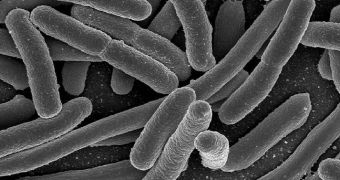Bacteria-based computing is not exactly a new concept, but people probably didn't spend much time envisioning the possibilities that researchers from the Imperial College London thought of.
E.Coli is a common occurrence in the lower intestines of warm-blooded organisms, including humans.
As such, it probably wouldn't be the first thing people would think about when asked what might aid in the creation of a new type of computing device.
A team of researchers from the Imperial College London found that modified strains of E.Coli could be employed in the making of bacterial logic gates.
These gates can be grouped in such ways that more complex gates and even entire biological processors might be created sooner or later.
Such chips may come to possess everything they need to 'grow' extra cores or even expand memory capacity by one or more gigabytes at a time.
In other words, real upgrading systems aren't so completely limited to science fiction anymore, nor are the sort of chips that can be planted in living bodies to fight cancer, clean arteries or perform other, localized medical feats.
“Logic gates are the fundamental building blocks in silicon circuitry that our entire digital age is based on,” said Professor Richard Kitney, co-author of the paper from the Centre for Synthetic Biology and Innovation and the Department of Bioengineering at Imperial College London.
“Without them, we could not process digital information. Now that we have demonstrated that we can replicate these parts using bacteria and DNA, we hope that our work could lead to a new generation of biological processors, whose applications in information processing could be as important as their electronic equivalents.”
Researchers say that their new biological gates have the advantage that they already behave like electronic counterparts.
All research prior to this only proved biological gates were possible, with little concrete progress in the direction of their actual making. Understandably, the team is very eager to push forward.
"We believe that the next stage of our research could lead to a totally new type of circuitry for processing information. In the future, we may see complex biological circuitry processing information using chemicals, much in the same way that our body uses them to process and store information."

 14 DAY TRIAL //
14 DAY TRIAL //